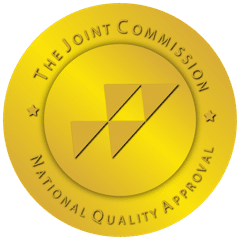In the landscape of addiction treatment, addressing dual diagnosis – the co-occurrence of addiction and mental health disorders – is paramount for achieving lasting recovery. Lift Off Recovery, located in the heart of Orange County, offers a comprehensive approach to addiction treatment that integrates specialized support for individuals with dual diagnosis. In this in-depth exploration, we delve into the unique features of Lift Off Recovery’s dual diagnosis program and how it empowers individuals to reclaim their lives from the grip of addiction and mental illness.
Dual Diagnosis Treatment
Understanding Dual Diagnosis
Dual diagnosis refers to the presence of both substance use disorder and mental health disorders in an individual. It’s a complex and often challenging condition to treat, as the interplay between addiction and mental health issues can exacerbate symptoms and hinder recovery efforts. Lift Off Recovery recognizes the importance of addressing both aspects of dual diagnosis simultaneously to provide holistic and effective treatment.
Tailored Treatment Plans
At Lift Off Recovery, each client receives a personalized treatment plan tailored to their unique needs and challenges. For individuals with dual diagnosis, this means addressing both the addiction and underlying mental health issues through evidence-based therapies, medication management, and holistic interventions. Treatment plans are designed collaboratively with input from clients, ensuring that their voices and preferences are heard every step of the way.
Comprehensive Assessment and Evaluation
Dual diagnosis treatment at Lift Off Recovery begins with a comprehensive assessment and evaluation process to gain insight into the individual’s addiction history, mental health symptoms, and underlying issues. This thorough evaluation allows clinicians to develop a clear understanding of the client’s needs and challenges, laying the groundwork for an effective and targeted treatment approach.
Integrated Therapy Modalities
Lift Off Recovery offers a wide range of therapy modalities designed to address the complex needs of individuals with dual diagnosis. These may include cognitive-behavioral therapy (CBT), dialectical behavior therapy (DBT), trauma-informed care, motivational interviewing, and mindfulness-based interventions. Therapy sessions are conducted in both individual and group settings, providing clients with opportunities for personal growth, self-reflection, and peer support.

Dual Diagnosis Support Groups
In addition to individual therapy, Lift Off Recovery in Orange County offers specialized support groups for clients with dual diagnosis. These groups provide a safe and supportive environment for individuals to share their experiences, learn from others, and receive validation and encouragement from peers who understand their struggles. Group therapy fosters a sense of camaraderie and belonging, reducing feelings of isolation and stigma often associated with dual diagnosis.
Medication Management and Psychiatric Services
For clients with dual diagnosis, medication management and psychiatric services play a crucial role in treatment. Lift Off Recovery’s team of experienced psychiatrists works closely with clients to assess their medication needs, monitor their progress, and adjust treatment as necessary. By addressing both the chemical imbalances associated with mental health disorders and the physiological effects of addiction, clients can achieve greater stability and well-being.
Holistic Approach to Wellness
In addition to traditional therapy modalities, Lift Off Recovery takes a holistic approach to wellness that addresses the mind, body, and spirit. Clients have access to a variety of holistic interventions, including yoga, meditation, art therapy, nutritional counseling, and outdoor recreational activities. These holistic practices complement traditional therapy approaches, promoting overall well-being and enhancing the client’s ability to cope with stress and triggers.
Find Addiction treatment with Dual Diagnosis at Lift Off Recovery
Lift Off Recovery’s dual diagnosis program offers a beacon of hope for individuals struggling with addiction and mental health disorders in Orange County. Through.
personalized treatment plans, integrated therapy modalities, and holistic interventions, clients can embark on a transformative journey of healing and recovery. If you or a loved one is grappling with dual diagnosis, know that Lift Off Recovery is here to provide the support, guidance, and resources needed to overcome these challenges and embrace a brighter, substance-free future.

- Q: What does “dual diagnosis” mean in the context of addiction treatment?
A: Dual diagnosis refers to the co-occurrence of a substance use disorder and a mental health disorder. This often complicates addiction treatment, as both issues need to be addressed simultaneously for effective recovery.
- Q: How common is dual diagnosis among individuals seeking addiction treatment?
A: Dual diagnosis is relatively common among individuals seeking addiction treatment. Studies suggest that up to 50% of individuals with substance use disorders also have co-existing mental health conditions.
- Q: What are some examples of mental health disorders commonly associated with dual diagnosis?
A: Mental health disorders commonly associated with dual diagnosis include depression, anxiety disorders, bipolar disorder, post-traumatic stress disorder (PTSD), and schizophrenia.
- Q: How does dual diagnosis affect the treatment approach for addiction?
A: Dual diagnosis requires a comprehensive treatment approach that addresses both the addiction and the underlying mental health condition. Integrated treatment programs that combine therapy, medication management, and support groups are often recommended.
- Q: What are the benefits of receiving dual diagnosis treatment?
A: Dual diagnosis treatment provides individuals with the opportunity to address both their addiction and mental health issues concurrently, leading to improved outcomes and a higher quality of life. It allows for a more holistic approach to recovery.
- Q: How is dual diagnosis treatment personalized to meet individual needs?
A: Dual diagnosis treatment is personalized based on each individual’s unique needs and circumstances. Treatment plans may include a combination of therapy modalities, medication management, lifestyle changes, and support services.
- Q: Is medication used as part of dual diagnosis treatment?
A: Yes, medication is often used as part of dual diagnosis treatment to manage symptoms of mental health disorders such as depression, anxiety, or bipolar disorder. Medication management is overseen by qualified medical professionals.
- Q: Can dual diagnosis treatment be provided on an outpatient basis?
A: Yes, dual diagnosis treatment can be provided on an outpatient basis, depending on the severity of the addiction and mental health issues. Outpatient programs offer flexibility and allow individuals to continue with their daily responsibilities while receiving treatment.
- Q: How long does dual diagnosis treatment typically last?
A: The duration of dual diagnosis treatment varies depending on the individual’s needs and progress. Some programs may last a few weeks, while others may extend to several months or longer for more intensive treatment.
- Q: What role do support services play in dual diagnosis treatment?
A: Support services, such as individual therapy, group therapy, family therapy, and peer support groups, play a crucial role in dual diagnosis treatment. They provide encouragement, guidance, and accountability throughout the recovery journey.










